Crash Story File: Jose Padilla's "Stolen Valor" Claims to Service in the California Highway Patrol
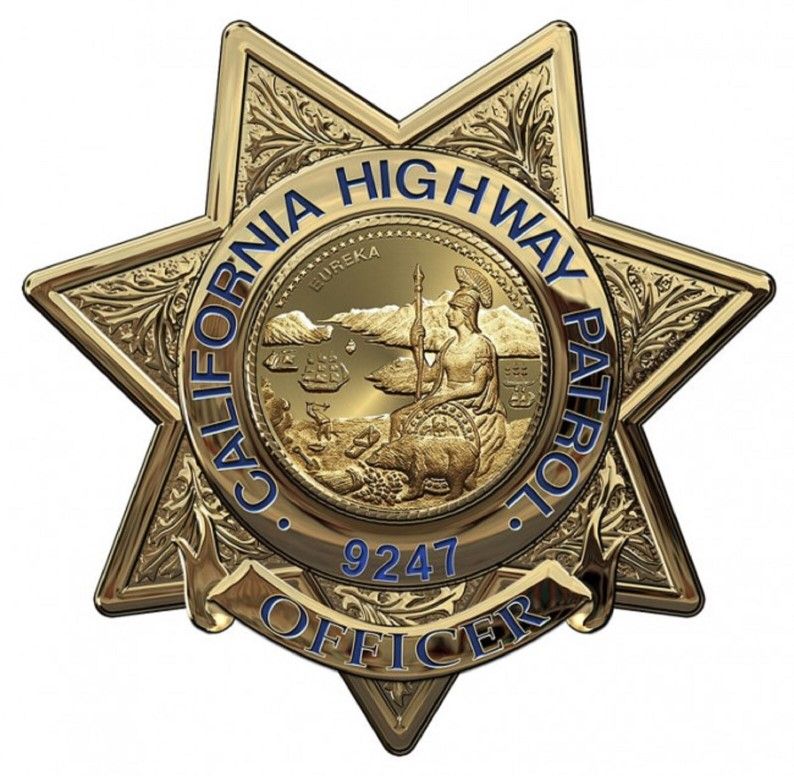
By Douglas Dean Johnson
@ddeanjohnson on Twitter
Original publication: May 1, 2023
You are in the Crash Story Files, a series of investigative reports examining claims that a UFO crashed and was recovered near San Antonio, New Mexico, in August 1945. To go back to the Crash Story hub and index, click here.
In 2003, Ben Moffett of the Socorro, New Mexico Mountain Mail wrote that Jose Padilla, one of the two "primary witnesses" to the claimed 1945 UFO crash near San Antonio, New Mexico, “served with the California Highway Patrol for 32 years as a safety inspector.” In 2015, Moffett wrote that his 2003 stories merely repeated information that Jose Padilla and Remigio (Reme) Baca had told him.
The term “safety inspector” does not conjure up the image of a commissioned law enforcement officer. But on this point as on others, the hoaxers grew bolder as the years went by.
In the book Trinity: The Best-Kept Secret by Jacques Vallee and Paola Harris (all quotes are from the Second Edition, August 2022, unless otherwise noted), we read (on p. 15) that Harris conducted her recorded interview with Reme Baca on July 5, 2010, at Baca's home in Washington State, and that “she completed that interview with a detailed phone conference with Jose Padilla, then a State Trooper in Rowland Heights, California.” Padilla would have been 73 years old on that date.
Based on other passages in the Trinity: The Best-Kept Secret (Second Edition), Padilla told Harris and Vallee that he had been a long-serving officer in the California Highway Patrol, and that he carried a bullet in his body, fired by a criminal during an arrest conducted by Padilla while he was serving in that capacity (Trinity, pages 126, 234).
Harris and Vallee believed every word. In fact, in six different places in Trinity: The Best-Kept Secret, Padilla's purported law enforcement background was cited by Vallee and Harris as lending credence to Padilla’s accounts of witnessing the crash and recovery of a UFO in August, 1945. Moreover, in the Second Edition, the name of "Officer Jose Padilla" appears first on a list of five named individuals to whom the book is dedicated (in the First Edition the dedication had read "Mr. Jose Padilla").
Other supporters of the 1945 UFO crash tail have also cited Padilla's purported law enforcement background as a credibility credential. For example, during an appearance with Paola Harris in 2016, David Garcia, who had recently visited the "crash site" and met with Padilla, said:
He [Jose Padilla] is very credible. Jose is a former police officer, like myself, and he is a very genuine man, who didn't want any money... or accolades. He just wanted the whole world to know the truth about what happened on his land." ("The New Extraterrestrial Paradigm," August 27, 2016.)
Vallee also cited Padilla's purported experience as a law enforcement interview in interviews. For example, in an interview with Jimmy Church originally published December 25, 2022, Vallee asserted that Padilla had been a California Highway Patrol officer "for many years," "had two bullets in his body," "is the best witness you could have," and "is really an excellent observer." A 55-second excerpt is embedded below.
Jacques Vallee expounds on the purported credibility credentials of Jose Padilla, on Into the Vortex with Jimmy Church (Season 1, Episode 8). December 25, 2022. Video clip presented under Fair Use for purposes of investigative journalism, commentary, criticism, and education.
Some tabloid writers picked up on Padilla’s claimed law enforcement background. “Padilla, now 86, became a Highway Patrol officer for 32 years,” reported Josh Boswell and Christopher Sharp in the UK Daily Mail (December 31, 2022).
In my opinion, based on my independent investigation, any claim by Padilla to have served as a commissioned peace officer in the California Highway Patrol, was untrue. Therefore, it would follow that Padilla's claim to carry in his body a troublesome bullet, received while apprehending a criminal as a law-enforcement officer, was also a fabrication -- an example of what is sometimes termed “stolen valor.”
At least four different avenues of investigation have led me to this conclusion. The details and documentation are presented below.
But first, because Vallee and Harris so clearly believed that Padilla’s purported law-enforcement background added greatly to his credibility, and wanted their readers to think so too, I am going to quote all of the pertinent passages from Trinity: The Best-Kept Secret (Second Edition, August 2022):
page 41: Jose Padilla had returned from Korea and had become a State Trooper in Rowland Heights, California.
page 60: Paola introduced me [Jacques Vallee] to Jose Padilla at the Owl Bar...He's also a retired State Trooper of long experience, and a quick judge of people. I must have passed the first test, because he inquired about my background and the state of the research...
page 112: Paola and I carefully transcribed that tape and we both went over it several times, noting the terms that were used, and admiring the precision with which Jose could recall those events of 1945 with the words of a trained policeman, in order to reconstruct the details for us.
Page 126: As far as Mr. Padilla's comment that he was "never scared," that statement may strike some readers as boasting or an old man's self-indulgence. Over multiple meetings with him, I have built up a different opinion: His calm and patient attitude with us was deceptive, because there was so much underneath that was built on unusual strength, courage and a knowledge of people good and bad that only an experienced police officer can acquire. This became apparent when Paola and I became very concerned about an imminent surgical operation he told us he might have to undergo, a procedure to retrieve a bullet that had lodged itself in his abdomen as he was arresting a criminal in California during his active years. At his age, anesthesia itself could be problematic. Further review of the bullet's placement with respect to vital organs, fortunately, led the surgeons to the realization that everything could be left alone, to everybody's relief. But the patient himself showed no sign of anguish.
Page 229: On Friday, the 16th of October 2020, Paola and I were back in Socorro one more time, to meet again with Mr. Padilla...Jose was recovering from an operation on his first bullet wound, the one from Korea. The second wound would require another surgery, a few weeks away. He now walked with a cane but after a period of depression his old energy was returning.
page 234: ...we spent time listening to Jose as he reminisced about his childhood, his days as a law enforcement officer in California, the time when he was shot, all the changes in his family, "back here," while he was gone.
Vallee has repeated claims about Padilla's law enforcement career in other places, as well. For example, in an interview with George Knapp on October 21, 2021, Vallee said:
Mr. Padilla went on to be a highway patrolman after being at war in Korea. He has two bullets in his body, one from the war, and one from someone that he was arresting as a cop in California as a highway patrol officer. These are serious people, this is not a joke.
[Note: Reme Baca, in his 2011 book Born on the Edge of Ground Zero (p. 75), wrote that Padilla’s “main health issues have been lung surgery, and he has been a non-smoker all his life, and served in the California highway patrol”--making no mention of either Korean War wound or a criminal’s bullet carried from Padilla’s putative California Highway Patrol years. I address Padilla's dubious war-service claims in the separate Crash Story File: Jose Padilla's "Stolen Valor" Military Claims.]
THE EXPERTISE OF RICK MATTOS, AUTHOR, CALIFORNIA HIGHWAY PATROL
In some aspects of my investigation, I was assisted by an expert, Rick Mattos. Mattos served 31 years on the California Highway Patrol, retiring with the rank of Officer. In his last five years on the CHP, Mattos served as president of the California Association of Highway Patrolmen, the labor organization that represents all active and retired sworn CHP employees. Mattos is author of the book California Highway Patrol (2008), one of the popular Images of America regional history books published by Arcadia Publishing. Mattos also serves as Chairman of the California Highway Patrol Museum.
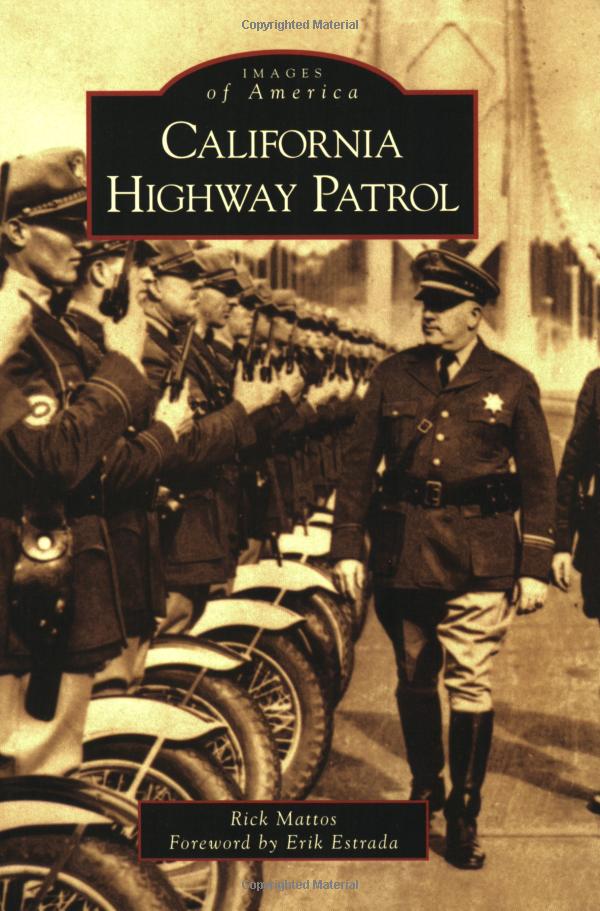
MANDATORY RETIREMENT AGE
Rick Mattos said that the California Highway Patrol has long had a mandatory retirement requirement that is effective on an officer’s 60th birthday. Jose Padilla was born on November 24, 1936, so if he had been a California Highway Patrol officer, he would have been forced to retire no later than November 24, 1996. So when Vallee-Harris say that when Harris first spoke with Padilla by phone in July, 2010, and that Padilla was “then a State Trooper in Rowland Heights, California,” Padilla was already 13 years past the mandatory retirement age.
This single reference could easily be dismissed as a misunderstanding on Harris’s part. But the six other passages in the Vallee-Harris book, quoted in full above, cannot be so easily dismissed.
HEIGHT REQUIREMENT
Jose Padilla was never even eligible to be an officer in the California Highway Patrol, because he did not meet the physical requirements for hiring by the California Highway Patrol that were in force throughout the time period when he would have met the age requirements.
Official New Mexico government records indicate that Padilla’s height in 2021 was 5 feet, 3 inches. Photos reproduced here, showing Padilla with MUFON Executive Director Jan Harzan in 2016, and with Jacques Vallee in 2020 and 2021, provide no basis to doubt the official records.
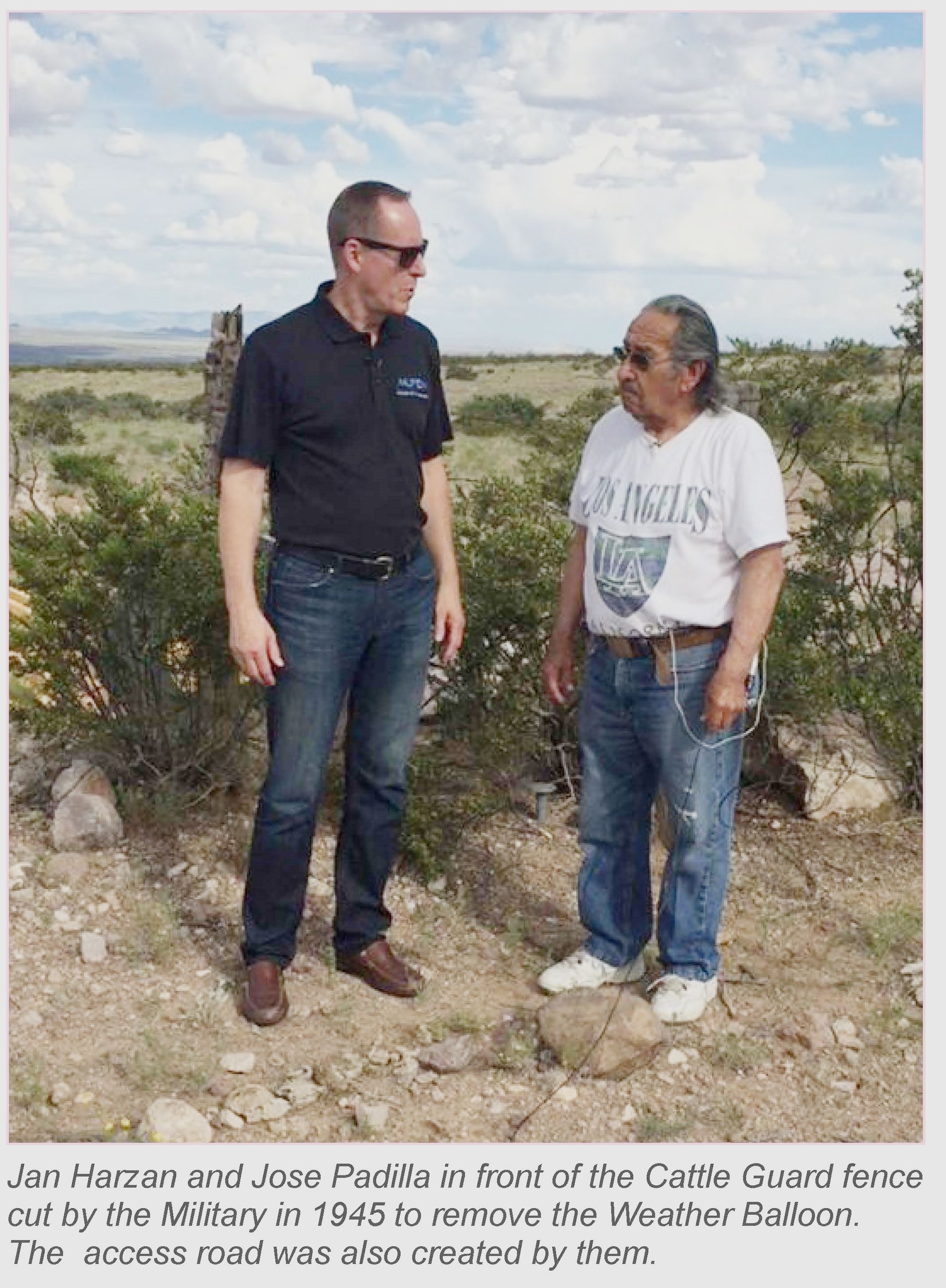
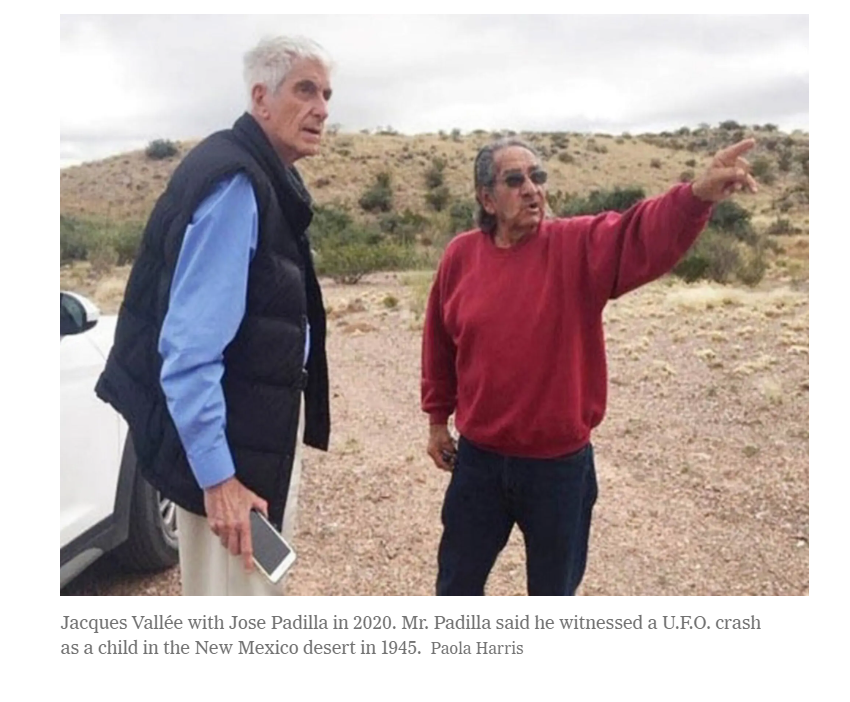
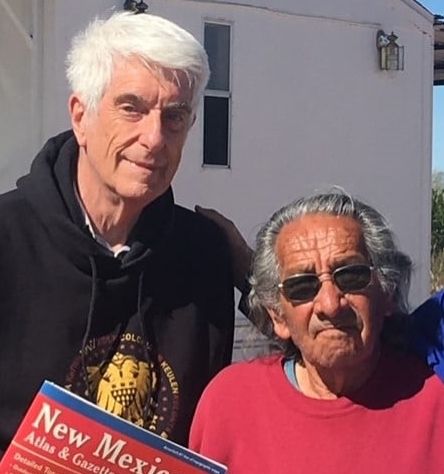
Like many police forces in the United States until into the 1970s or later, the California Highway Patrol from its inception enforced a minimum height requirement, which was 5 feet, 9 inches. Shown here is a recruitment flyer that features a photo taken in November 1936—the flyer itself would date to about 1937—and it clearly states the 5-foot, 9-inch minimum-height requirement.
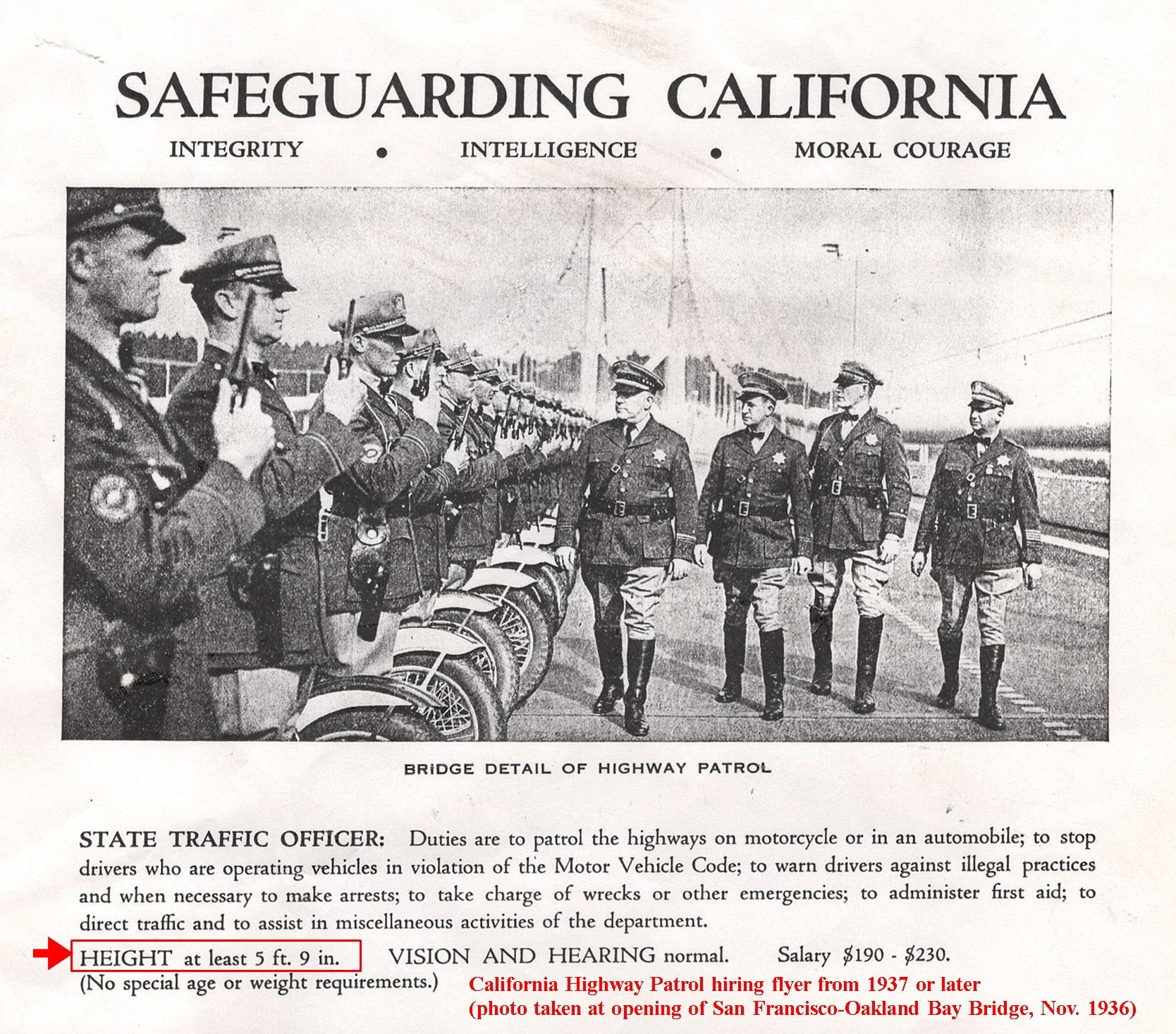
During the 1960s, the CHP periodically sent out notices for hiring examinations, which stated the same height requirement: 5 feet, 9 inches. I am reproducing a newspaper item from one such notice in 1968, but there were many others. In each case, the 5-foot, 9-inch height requirement was clearly stated. I believe that those who delve into the matter will find that 5-foot, 9-inch was a typical threshold for many U.S. police forces in that era.
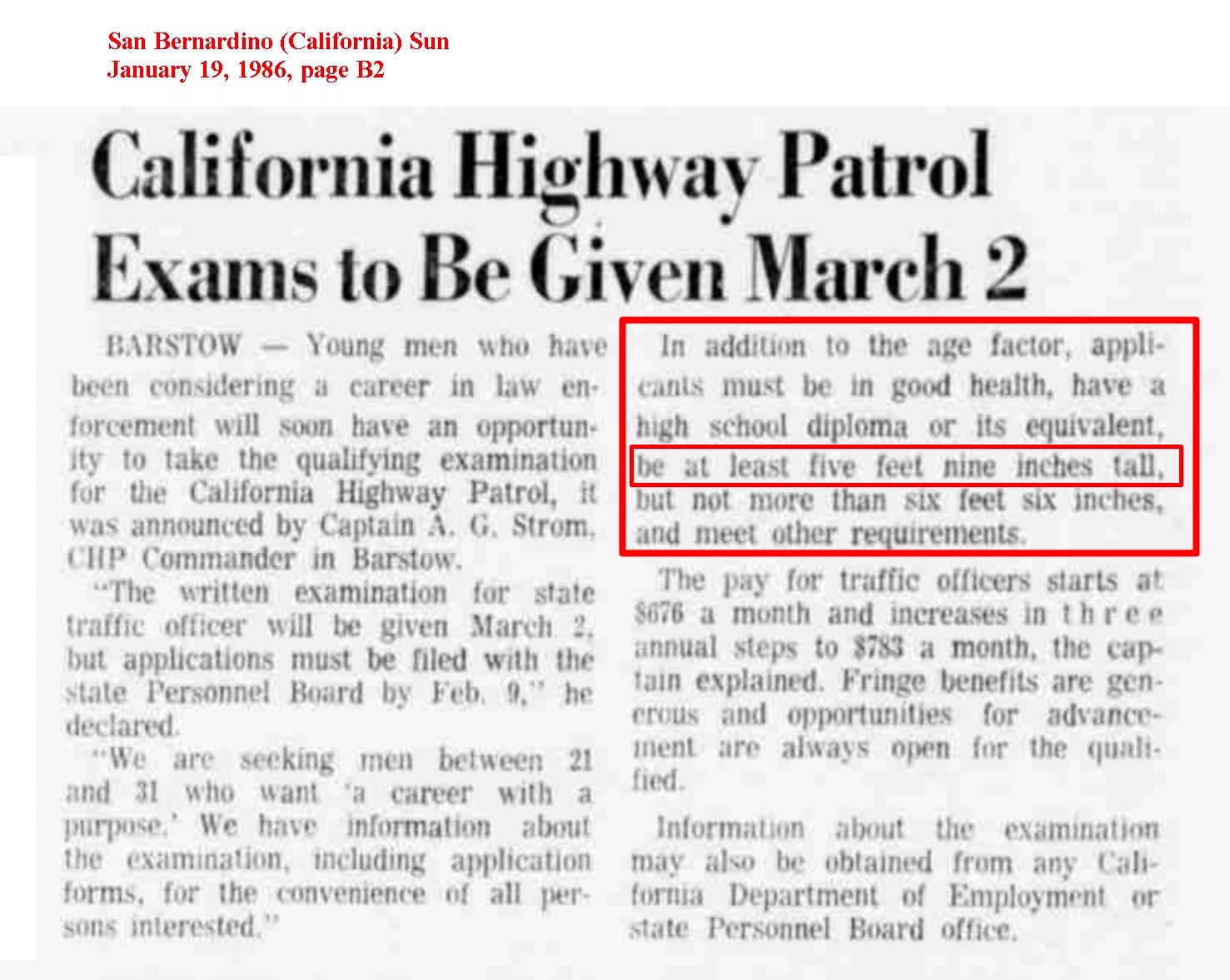
It is true that with age a man may lose a inch or two of height—gravity takes its toll. But I think that we can all be confident that Jose Padilla did not shrink by 6 inches after a swashbuckling, bullet-catching career with the California Highway Patrol.
The California Highway Patrol and many other police forces dropped rigid height requirements in the 1970s, because they came to be seen as discriminatory. But by that time, Jose Padilla was too old to be hired by the California Highway Patrol.
DATABASES AND LISTS
Rick Mattos pointed out that tens of thousands of persons have served as commissioned peace officers of the California Highway Patrol since the 1950s. I gave Mattos the claims about Padilla’s association with the California Highway Patrol, as published in the sources cited above. Mattos then delved into whether Padilla, under any conceivable name variant, had ever been associated with the California Highway Patrol.
Based on probable age requirements, Padilla would not have been eligible to be a CHP officer until late 1957 at the earliest. To be sure, Mattos consulted a validated list of all commissioned CHP officers as of December, 1956: “Padilla is not on that list.”
Because the CHP has long required its members to retire by their 60th birthday, the end of Padilla’s “window” of eligibility was November 24, 1996. To have had 32 years of service, he could have begun employment no later than 1964, at age 28.
Mattos said: “I’ve looked through every database available to me and I cannot find any mention of Jose Padilla, or Joseph Padilla, as an employee of the California Highway Patrol or member of the California Association of Highway Patrolmen at any time in their shared 103-year history. The lists are not complete, but I feel it would be highly unlikely for anyone to work for 32 years [and even be wounded in service?], and not leave any trail behind.”
A second investigator delved into additional databases not accessible to Mattos, and also found no trace of Joseph (Jose) Padilla.
PENSION SYSTEM
In another converging proof of Padilla’s duplicity, he draws no pension based on California Highway Patrol service (or, it appears, from any other California state agency).
California Highway Patrol retirees all receive their pensions through a unified system that handles most state agencies and many local government components, called CalPERS. By law, pensions drawn by retirees from California state agencies are public information, and may be searched in various ways in a database accessible on the Internet, such as this one.
During 2021 (the most recent year posted), there were 458 people named Padilla drawing state pensions from California. Of these, six were retirees from the California Highway Patrol; none were named Joseph or Jose, nor did they match our subject in other respects.
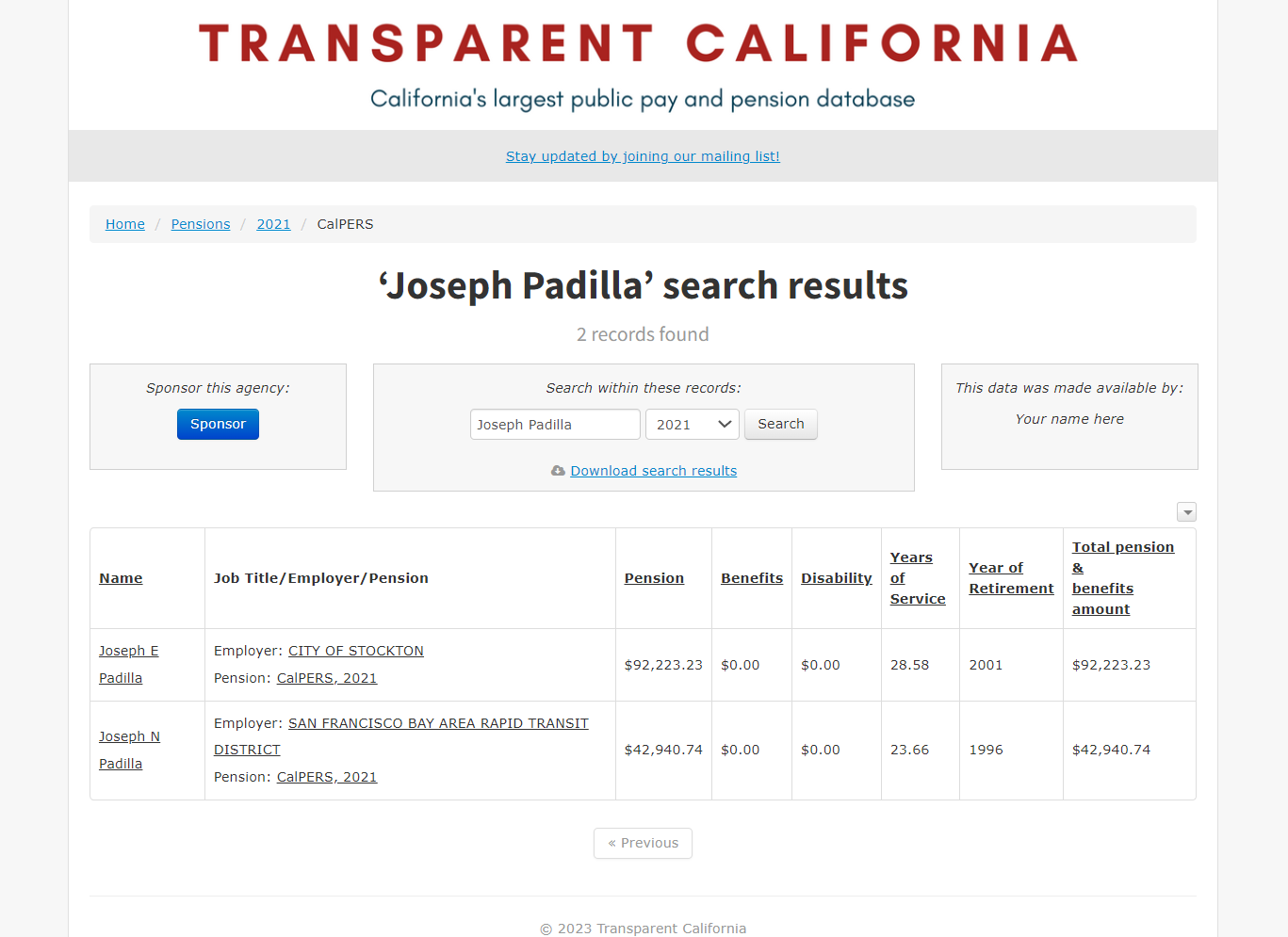
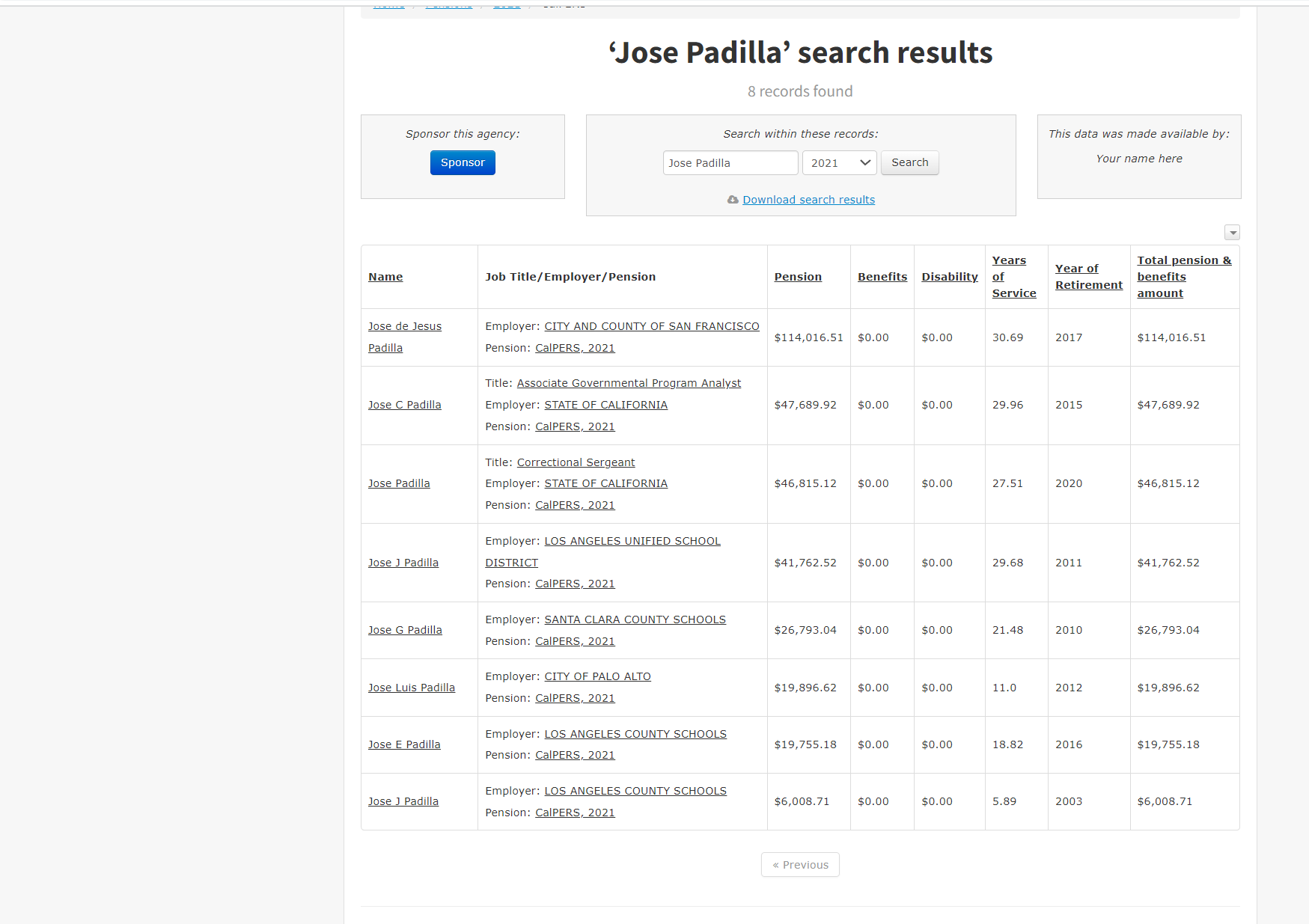
During 2021, there were 9,119 California Highway Patrol retirees receiving pensions through CalPERS (this includes both commissioned peace officers and non-commissioned employees); none of them were Joseph or Jose Padilla.
The California Highway Patrol has long required officers to retire by their 60th birthday (on the dot), so Padilla would have had to retire by November 24, 1996. While officers on retirement may take all of their cash out in a lump sum, that would have been a rather crazy choice for someone 60 years old or younger, with 32 years of service. The database shows pensions for regular CHP officers who retired in 1997 with 32 years of service were at least $50,000 per year, and more often around $70,000. (Much higher pensions than those were shown for those who retired as sergeants or at higher ranks.) If Padilla had retired a quarter-century ago at the mandatory age of 60, or younger, he would have received well over $1 million in pension payments by now, plus the health insurance that goes with the pension coverage.
HOW PADILLA COULD EASILY PROVIDE EVIDENCE OF HIS CALIFORNIA HIGHWAY PATROL CLAIM, IF IT WERE NOT A LIE
Anyone who had actually served in the California Highway Patrol could easily provide us with information that would validate the claim, by citing the California Highway Patrol Academy class that he graduated in, and by citing his career-long badge number.
Since 1930, all CHP officers have been required to graduate from the Academy before working in a law enforcement capacity. Rick Mattos explains: “Every officer knows the date of their academy class. They are denoted as, for example, ‘Cadet Training class two of 1935’--the shorthand is CTC II-35. Each class number has a plaque on display at the academy showing the names of the cadets. If Padilla is real, he would be able to tell you the class number and his name would appear on the plaque.”
In addition, each commissioned CHP officer receives a badge number, which he carries throughout his service regardless of promotions, and which denotes his seniority ranking.
“Upon retirement, that number stays with the officer, and it is a source of pride, as it denotes how long one has been with the department,” Mattos told me. “While serving, that number determines transfers, vacations, and often shift assignments. It is a part of every official document and report. I know of no mentally competent CHP officer that has forgotten his or her badge number. If Padilla provides a badge number, it will belong to someone.”
Mattos concluded, “I think that for anyone to insist that Padilla was ever a California Highway Patrol officer, they would have to provide the badge number and explain why a 32-year employee does not get a pension.”
It is my opinion that when Jose Padilla told Paola Harris and Jacques Vallee that he had been a California Highway Patrol officer, he intentionally misled them. If Jose Padilla indeed carries a troublesome bullet in his body – which I am inclined to doubt – then I think that he did not acquire it in the manner that he reported to Harris and Vallee.
Since Vallee and Harris have insisted that Padilla's ostensible long experience as a law enforcement officer substantially enhances his UFO-related claims, Vallee and Harris now bear the burden of bringing forth documentation to substantiate the ostensible credential. The reader is reminded that both Jacques Vallee and Paola Harris have repeatedly asserted that Jose Padilla has "a photographic memory,” or as Vallee once put it, “an eidetic memory." Padilla's memory is so acute that he “could recall those events of 1945 with the words of a trained policeman,” Vallee-Harris assured readers in Trinity: The Best-Kept Secret (p. 128). In that case, Padilla should have no difficulty providing his badge number to assist in the validation of his dubious claims.
[UPDATE (September 25, 2023): In a public memo posted May 15, 2023, Jacques Vallee abandoned his previous oft-stated claim that Jose Padilla was "a retired State Trooper of long experience." Vallee offered this replacement claim: "He found civilian employment when he returned to the US, eventually working as a contractor for CHP as a truck inspector, although not as a sworn officer. It is in that work that he was shot by a crooked driver carrying illegal passengers. The latest attempt by his doctors to remove the bullet from his abdomen was just a few months ago. As we all know, it was decided that the operations carried more risk than the bullet, given his age and frail condition."
In an internet lecture given on September 16, 2023, Paola Harris repeated the new story: "He was a subcontractor for a state trooper. He wasn't a state trooper. He had to explain to me-- because he showed me his overalls and his uniform--that he was a truck driver who subcontracted to go under the trucks to see that there was no smuggling of people or drugs across the state line....So we have a picture of the overalls that he wore to go under the trucks, and he was shot. So he has a bullet that has not come out. You can feel the bullet. It's on his waist. He was shot because when he did go underneath the trucks at the border where he helped the state patrol, they shot him. And the doctors are saying that if he removes that bullet, it would get infected, and that it better stay in there."
As to the purported shooting, such an event would have been reported in the local press, and there would also be records in California state archives– but alas, neither Vallee nor Harris have provided a date, location, name of the corporate entity, or other details that would permit any independent validation of the new story, which in my opinion is merely another product of Padilla's imagination. Nor did Vallee or Harris offer any explanation of how they could have repeated the erroneous "state trooper" claim for years, in their book and in interviews, and yet never been corrected by "Officer Jose Padilla" (until after this article was published on May 1, 2023). Nor have Vallee or Harris provided a single shred of actual medical evidence (e.g., an affidavit from a physician, X-rays) to support their oft-repeated claims that Jose Padilla carries bullets in his body.]
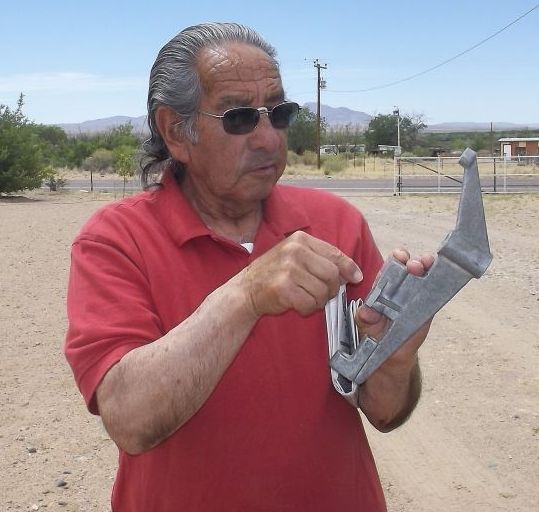
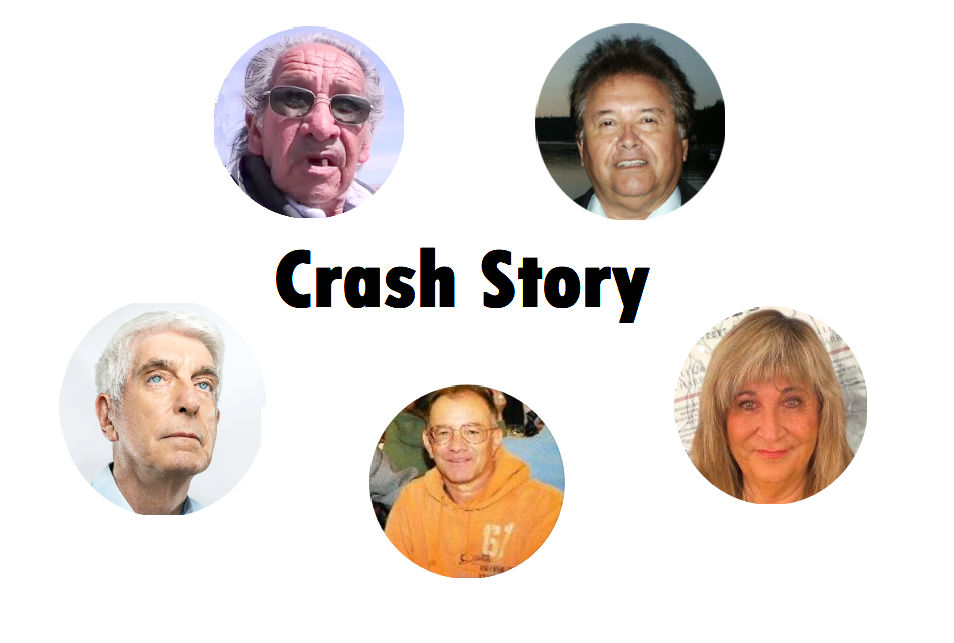
SUBSTANTIVE MODIFICATIONS SINCE THIS ARTICLE WAS ORIGINALLY PUBLISHED ON MAY 1, 2023.
(1) May 9, 2023: Added an additional photo of Jacques Vallee standing next to Jose Padilla, 2021.
(2) May 17, 2023: The book Trinity: The Best-Kept Secret credited Jose Padilla with a long career in the California Highway Patrol, but the book did not specify that it lasted for "32 years," so I removed that specific erroneous attribution to the book. The figure of "32 years" came from a 2003 article by Mountain Mail writer Ben Moffett– an article that Moffett said was based entirely on information given to him by Padilla and Reme Baca.
(3) September 25, 2023: Added an update at the end, quoting Jacques Vallee (May 15, 2023) and Paola Harris (September 16, 2023) abandoning their oft-stated claim that Padilla had long served as a "State Trooper" in California, and substituting a new claim that Padilla was actually a contractor for the California Highway Patrol, was shot in that capacity, and carries a bullet in his body from the incident– all highly doubtful claims for which they have offered no verifiable details and no shred of actual evidence.
(4) October 5, 2023: Added a paragraph and short video clip from an interview with Jacques Vallee by Jimmy Church, published December 25, 2022, a sample of which was posted on Facebook by Unexplained on Gaia on October 1, 2023.
- 2,497 words